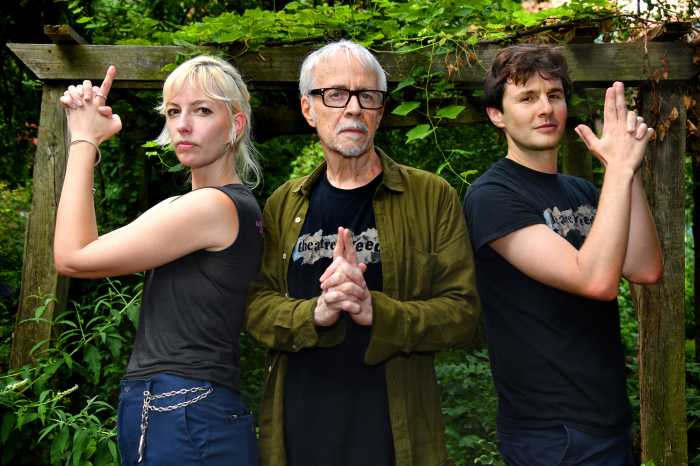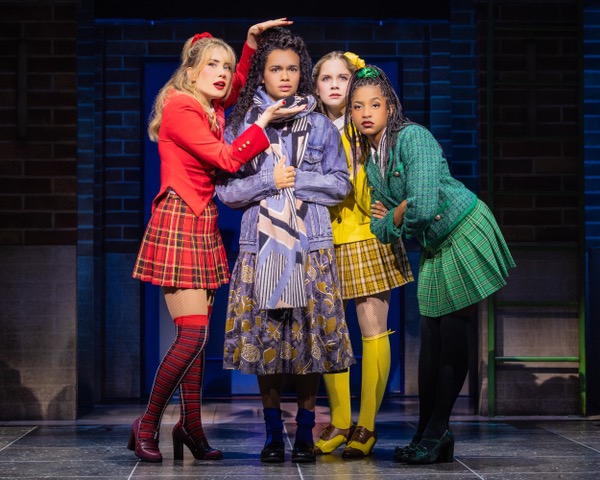By Laurie Mittelmann
When Nat Bletter doesn’t have a paycheck to buy pastries or his favorite Thai soup, he hits East River Park across from his apartment for lamb’s-quarters, pineapple weed and Juneberries.
“I think people need to realize that food doesn’t just come packaged from the supermarket,” said Bletter, 38, whose full name means “God gives leaves” in a mix of Hebrew and Yiddish.
Surely there are other botanists on the concrete-covered island of Manhattan, but probably none is more passionate about eating what grows there. Bletter is far from the typical New Yorker. He’s more likely to be scaling trees than riding elevators up skyscrapers. You’ll find him getting his jam from Central Park, rather than Dean & DeLuca. And he’ll grab a park salad along the Hudson River Park bike path at W. 46th St., instead of stopping at H & H Bagels across the street.
This month, Bletter will finish his doctorate in ethnobotany — the study of how humans interact with plants — but he is far from an impartial scientist. To encourage people to use the plants from their neighborhoods, Bletter leads edible-plant walks in different parts of the city.
“Foraging is about connecting people back to the planet that gives them sustenance,” he said.
On a recent Thursday evening, about a dozen people and a dog gathered at the E. 79th St. entrance to Central Park to learn from Bletter about appreciating the park’s flora as food. Some took notes, others just listened.
“Don’t eat anything unless I say it’s O.K.,” Bletter said at the outset. He came equipped with empty plastic containers for the harvest, high-top hiking boots in case he needed to climb a tree and a canteen for washing plants, like the large-leaved, burr-covered burdock.
“Burdock is $6 to $8 a pound in the Union Square farmers market,” he said, as he dug in his backpack for a shovel to demonstrate how to excavate the plant’s crunchy roots. “In the spring and summer, I get all of my greens free from parks.”
In one shady grove, Bletter bent down to the soil to point out an invasive plant called Japanese knotweed. As he showed people how to chew its purple stalk, the dog, a brown-and-white pit bull named Petunia, also began to munch, but on a different plant. Her owner asked if it was safe, to which Bletter said, “Uhhh… I know that’s not good for humans.”
The dog owner dragged his pooch back to the trail as the group moved forward.
When one man sliced his hand with a pocket knife while chopping up some burdock for the park salad, he grabbed some of the common plantain weed, which Bletter had explained earlier has emollient properties to help soothe wounds and insect bites.
“The bleeding stopped within 15 seconds,” said Eco Lake, 29, of Colorado, sitting cross-legged on the ground, smiling. “I knew it would all turn out fine.”
At the end of the two-hour walk, Bletter wrapped the finds in a piece of cloth and began spinning it around his head like a cowboy with a lasso to mix the ingredients, which he then poured into a bowl. Walkers loaded the salad onto their plates and devoured it, seeming both hungry for food and for the adventure and simplicity of finding it themselves on the ground. They passed it around for seconds and scraped the last berries from the bottom of the bowl.
“Everyone is talking about eating local and organic food,” Bletter said, “but this is the most you can get.”
Bletter began foraging at Stanford University, where he majored in computer science before realizing that he didn’t want to be stuck at a desk all day. While working nearby in Silicon Valley, where fruits are abundant, he broke the monotony of the day on his lunch break.
“I’d go up to people who had a fig tree in their yard and I’d be like, ‘Are you eating this?’ And they’d be like, ‘I don’t know what the hell it is,’ “ said Bletter. “They were more worried about the paint finish on their car than eating fresh fruit.”
Until then, his interest in plants had not been apparent to his mother, Rosemarie Bletter, 69, who brought him each summer to her parents’ home in Germany, where he was able to eat fruits and vegetables in the garden. She had grown up there and foraged in the forest for strawberries and blackberries for jam and beechnuts for oil.
“We would go to visit him at Stanford and he’d take us to Golden Gate Park and pick us banana passionfruits and make jams,” she said. Then he showed her and his father the elaborate fruit-tree maps that he drew and gave to the homeless.
So many different species of plants grew on the West Coast that Bletter began counting each fruit that he tried, a list that has grown to more than 200 since he’s traveled around the world.
Bletter returned to New York City in 1999 to study ethnobotany at City University of New York. His interest has also taken him to the Amazon in Peru and the savanna of Mali, where he researched locals’ different medicinal uses of plants. He has gone camping without bringing any food supplies.
“I worry about him because he’s so fearless,” his mother said.
He stands tall, lanky and composed, but, like a flower, is revealing if given time to open up. His temperament is cool as a cucumber and at ease, unlike many other prickly New Yorkers.
Bletter keeps an online address book with lists of friends interested in unusual Asian fruits like the mangosteen. On any afternoon he might be spotted skateboarding down Grand St. — where he lives in one of the large co-op buildings — on his way to evaluate the Chinatown produce for seasonal items.
Foraging has certainly become a lifestyle for Bletter, who gets many of his friends involved with his harvesting, as well. On a recent afternoon, he met up with two friends to pick mulberries in the same area of Central Park where the walk occurred. He dressed in purple to prevent berry stains, as he often does.
They stretched two giant tarps below the trees and shook the branches, sending a shower of fruit to the ground.
“Shake, shake, shake your mulberry,” sang Zeke Mandel, 37, of Astoria to the tune of “Shake Your Booty.”
As the tree pelted them with park “produce,” another friend, Jonathon Moll, 45, of Manhattan, suggested that they should have worn hardhats instead of straw hats, and Bletter reassured the tree.
“I promise I won’t rip any branches off of you,” he said.
At one point, two men in a Central Park Conservancy vehicle rolled up and asked whether the group was damaging the tree and what they would do with the berries.
“We make jam, ice cream and chocolate,” Bletter explained. “Do you know where we could find more of these trees?” The men first laughed, and then tipped him off to a Juneberry tree on the west side of the park.
Then a woman in a sundress strolled by and said, “I enjoy the mulberries very much if the birds don’t get to them first.” Bletter laughed and said, “Or the ethnobotanists.”
Bletter takes invasive species as a challenge to be eaten “into control.” To combat these pesky plants, he plans to start a company called Eating Aliens, which would market some of these healthy and tasty weeds.
He has already established another company for raw chocolate, Pure Origins, with Mandel. Their treats will concentrate antioxidants to four times the amount found in most products, so that chocoholics can eat much less of their favorite treat while getting the same nutritional benefits. They will also incorporate traditional ingredients of the Mayans, Aztecs and Olmecs, who were the first to prepare chocolate with chili peppers, vanilla and obscure flowers.
Bletter’s interest in food and plants extends beyond foraging, of course. He once considered training to be a professional chef. This September, he and anthropologist Cathy Silverman will lead a culinary-, musical- and medicinal plant-focused tour of Bali, which is where Bletter was first influenced to focus his diet on plants and become vegetarian. He now calls himself a pesca-non-crustacean-pastry vegan, eliminating all animal products from his diet except fish and the pastries he seeks out at bakeries around the city.
As expected, Bletter receives plenty of criticism from people who think that plants growing in the city are contaminated. At the recent Coney Island Mermaid Parade, he picked Juneberries from a tree as onlookers warned him about homeless people urinating on them.
“I think I would want to reward them for peeing so high,” said Bletter. “And besides, pee is sterile and you can wash it off really easily. Pesticides in stores are a jillion times worse.”
For information on Bletter’s New York City walking tours and Bali tour, visit https://nadabrahma.org/Tour2008.html. For information on his soup blog, visit https://khaosoi.blogspot.com/.






























